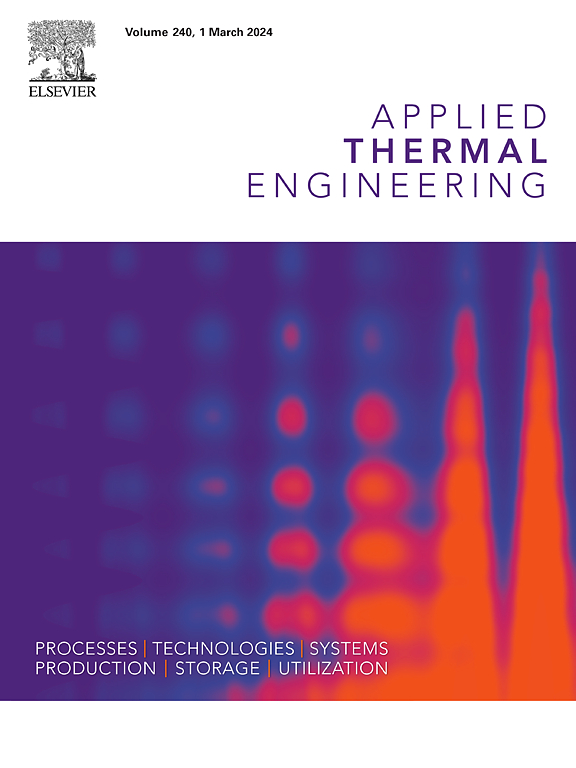Experimental investigation and machine learning applications of a quasi-two-stage single screw expander integrated into an Organic Rankine Cycle
IF 6.1
2区 工程技术
Q2 ENERGY & FUELS
引用次数: 0
Abstract
The organic Rankine cycle system based on a single screw expander efficiently converts thermal energy into mechanical energy, making it a viable technology for harnessing widely distributed low- to medium-temperature heat sources with significant application potential. Increasing the operating temperature is essential for enhancing performance, however, this approach substantially increases the expansion ratio. Current single screw expanders typically operate within a lower temperature range due to the material limitations of the star wheel and the screw. To address these challenges, a prototype of a quasi-two-stage single screw expander was designed and manufactured, making it suitable for higher temperatures and larger expansion ratios. This prototype was integrated into an organic Rankine cycle experimental system, where tests were conducted on both the expander and the overall system under various operating conditions. A data-driven predictive model was developed by integrating experimental research, machine learning, intelligent optimization algorithms, and cross-validation techniques to assess the shaft efficiency, output power of the expander, working fluid pump efficiency, and net efficiency of the system. Particle swarm optimization was employed to optimize the parameters of the Random Forest model, while k-fold cross-validation improved model accuracy. The results indicate that the expander prototype operates stably at a maximum inlet temperature of 159.6 °C and a pressure of 1.61 MPa, achieving a maximum output power of 6.05 kW and a shaft efficiency of 46.13 %. The power consumption of the working fluid pump is approximately 3.7 to 4.0 times the theoretical value, while pump efficiency varies between 13.4 % and 31.2 %. At an expansion ratio of 7.0, the optimal values for the three defined efficiencies are 7.6 %, 5.9 %, and 4.3 %. Furthermore, the predictive model demonstrates high accuracy, with maximum relative errors for each model ranging from −0.99 % to −0.97 %, −0.91 % to −0.97 %, −2.03 % to 2.00 %, and −1.89 % to −1.67 %, respectively.
求助全文
约1分钟内获得全文
求助全文
来源期刊

Applied Thermal Engineering
工程技术-工程:机械
CiteScore
11.30
自引率
15.60%
发文量
1474
审稿时长
57 days
期刊介绍:
Applied Thermal Engineering disseminates novel research related to the design, development and demonstration of components, devices, equipment, technologies and systems involving thermal processes for the production, storage, utilization and conservation of energy, with a focus on engineering application.
The journal publishes high-quality and high-impact Original Research Articles, Review Articles, Short Communications and Letters to the Editor on cutting-edge innovations in research, and recent advances or issues of interest to the thermal engineering community.
 求助内容:
求助内容: 应助结果提醒方式:
应助结果提醒方式:


